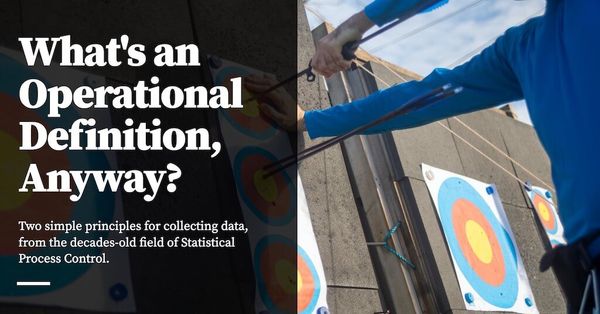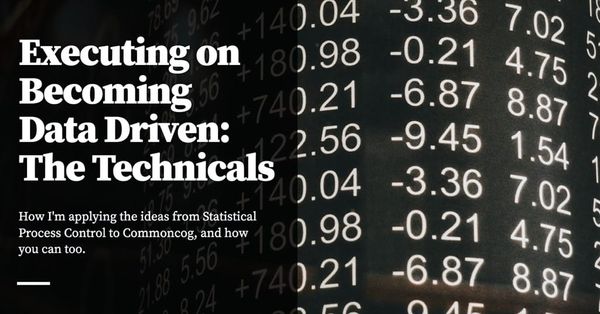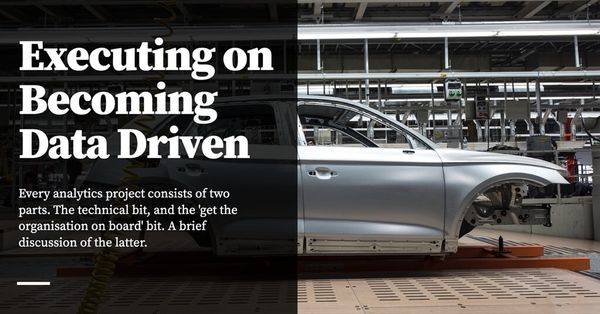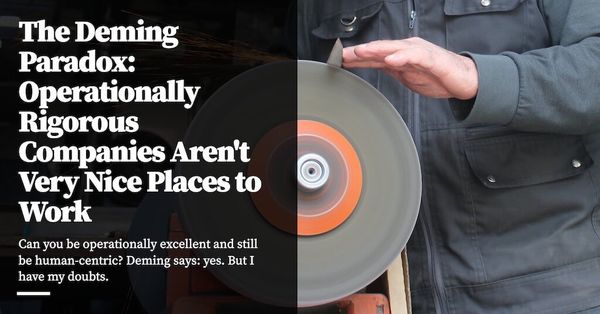'Operations’ is a shorthand for ‘factors involved in effective operations’, which is one of the three legs of triad mental model of business expertise. If you don’t know what that is, read this page first.
Operations is a broad topic. Good businesspeople tend to have a firm grasp of the operational details of their firm, though the forms of this grasp can vary widely. This is probably obvious to you: there are many aspects of operational excellence, and the details are often specific to an industry or company. Commoncog’s approach here is eclectic: we sample from a wide range of ideas, with the caveat that our treatment should be differentiated or useful.
Series and Guides
The two big Commoncog publications under this topic are:
- Becoming Data Driven in Business — a series looking into the ideas and methods of Statistical Process Control, which provide a foundation for a highly effective approach to data in business.
- The Starter Manager Guide — a free, short guide for novice managers, designed to get you up to speed within six to eight months.
Notable Articles
Some notable Commoncog pieces in the Operations topic cluster:
Focus
Focus in business means a particular, slightly odd thing: you can ignore everything apart from the highest priority thing and still turn out ok.
- Prioritise the Highest Order Bit
- Focus is Saying No to Good Ideas
- Focus Doesn’t Mean Doing One Thing at a Time (members only)
Org Design
Many people talk about org design as a discipline (or use it as management consulting synonym for ‘restructuring’), but few attempt to talk about the expertise of org design.
- The Skill of Org Design — What good org design looks like.
- Org Structure Isn’t Everything in Org Design
Cash Strapped Hiring
How do you hire when you don’t have money?
- What Good, Cash-Strapped Hiring Looks Like — All cash strapped operators who take their hiring seriously eventually converge on an identical process.
- Inverting the Cash Strapped Hiring Process — If every competent bootstrapped or cash-strapped operator develops something that looks like the ’generalise cash strapped hiring process’, you can invert it to identify companies that aren’t that competent at hiring.
Taste in Product Development
What is product taste and what does it look like?
- Product Development as Iterated Taste
- Product Validation Frameworks are Mostly Useless Without Taste
- This is What Product Taste Looks Like (members only)
- Creative Selection book summary
Misc
A grab bag of other articles:










